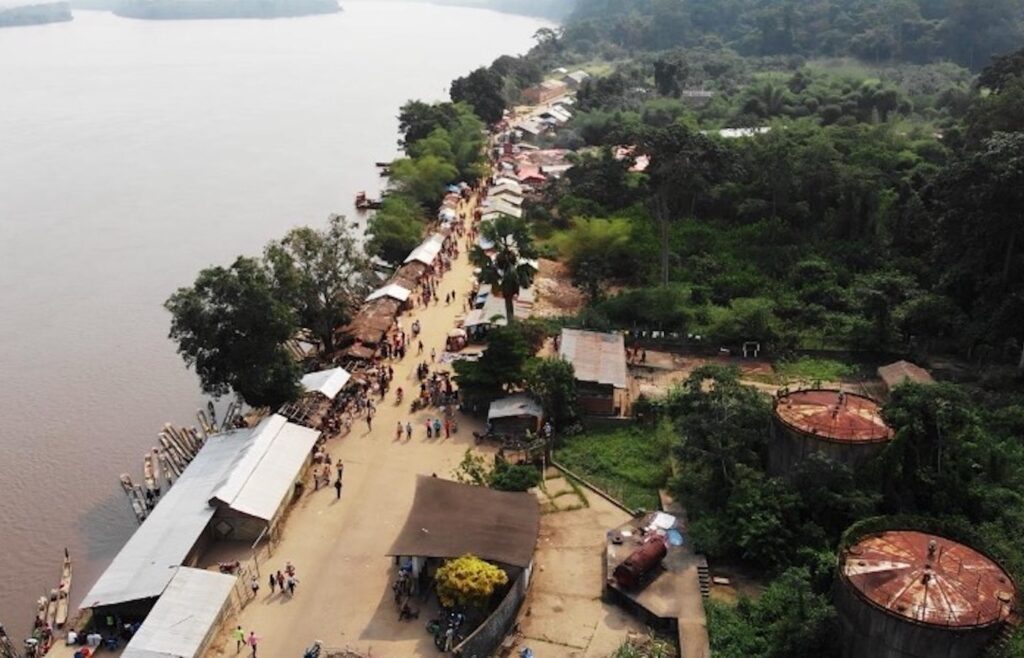Goldsmiths CCA, London, United Kingdom
04 Oct 2024 - 12 Jan 2025

Sammy Baloji, Aequare. The Future that Never Was, 2023. Still. Courtesy of the artist and Galerie Imane Farès.
Goldsmiths CCA presents a solo exhibition by Sammy Baloji. Comprising two new commissions and important recent works, all of which will be on display in the UK for the first time, this major exhibition presents interconnected strands of Baloji’s artistic research on climate, tropical architecture, Belgian Art Nouveau, and extraction from the Democratic Republic of Congo.
Baloji’s 2023 film, Aequare. The Future that Never Was, focusses on the rainforest around the town of Yangambi and illuminates the legacy of colonialism and the ecological destruction it has caused. The tropical rainforest region in the Congo is the second largest in the world and has a central role to play in the regeneration of the planet’s atmosphere. However, Baloji’s film shows that, as Sandrine Colard has argued, these possibilities are impeded by ‘the disequilibrium caused by old imperial networks and their vestiges.’ The juxtaposition of different types of footage – archival film clips of a climate study centre from the colonial period and recent shots of its contemporary successor – and intricate work on the soundtrack combine to offer a powerful critique of science’s allegiance to capitalism and colonialism.
This important intervention will be shown on Goldsmiths CCA’s first floor, alongside works in other galleries, such as …and to those North Sea waves whispering sunken stories (II), an installation comprising a terrarium containing tropical plants and an audio recording of Albert Kudjabo (1896 – 1934), a Congolese soldier who fought for the Belgian Army during the First World War and was captured and interrogated by the German Army. Finally, a newly commissioned work will consider the connections between extraction and Belgian Art Nouveau, an art movement that, at the time of its emergence, was known as Style Congo and utilised both Congolese motifs and materials.
The film and print-based works selected for the basement galleries are key examples of Baloji’s ongoing research on the cultural, architectural and industrial heritage of the Katanga region. Shinkolobwe’s abstraction (2022), a work comprising 15 screenprints, recomposes the crystallographic geologic studies of the region into coloured abstracted forms and superimposes them on top of images of a nuclear explosion. In so doing, the work addresses the period in which the major Cold War powers, the Soviet Union and the United States, wanted to gain access to uranium, of which Shinkolobwe was the largest resource in the world. A newly commissioned work extends the formal and political investigation in Shinkolobwe’s abstraction, while Tales of the Copper Cross Garden (2017), a 43 minute video, reveals how colonialism and the Catholic Church are, in the artist’s own words, linked in their impositions to the local Katanga culture. For me, Baloji said, nothing less than the copper crosses held in front of the hearts of the choir children suggest how the missionaries tried to steal their souls while exploiting the local copper resource for the benefit of Europeans.